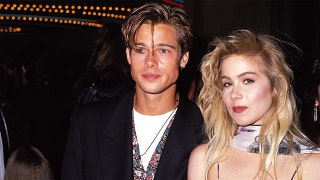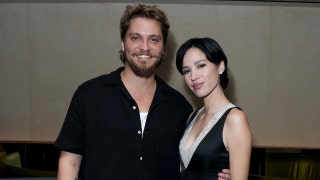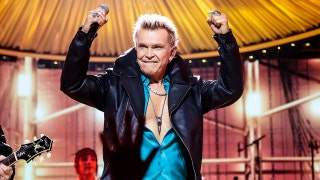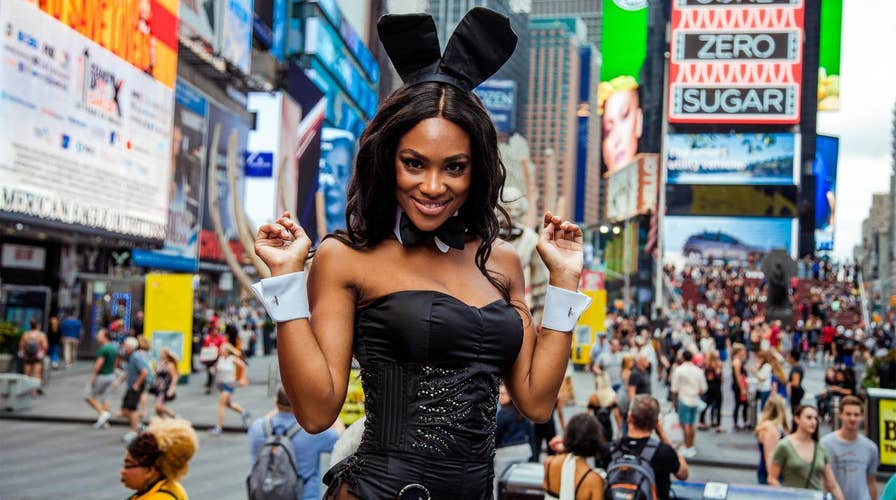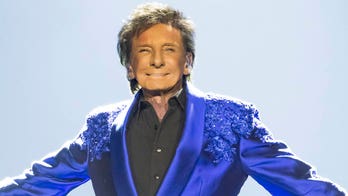Playboy's December 2018 Playmate Jordan Emanuel says being a Bunny at the Playboy Club in New York City is 'empowering'
Playboy model Jordan Emanuel, who is a Playmate for the magazine's November/December 2018 issue, says being a Bunny at the new Playboy Club in New York City is 'empowering.' The pinup and co-founder of Women with Voices details her new photo shoot, being inspired by Carmen Electra and slipping into the iconic suit for the first time.
Playmate Jordan Emanuel isn’t worried that the recent reopening of the Playboy Club has ruffled some feathers.
More than 30 years after the original nightlife hotspot closed in Manhattan, the playground of the elite has opened its doors in New York City.
And while fans of the men’s lifestyle magazine may be eager to see the Bunnies in action again with their satin, curve-hugging uniforms, some critics have been quick to slam the venue. The Guardian labeled the Playboy Club and its cottontail-wearing servers “tone-deaf” at the height of the #MeToo and Time’s Up movement.
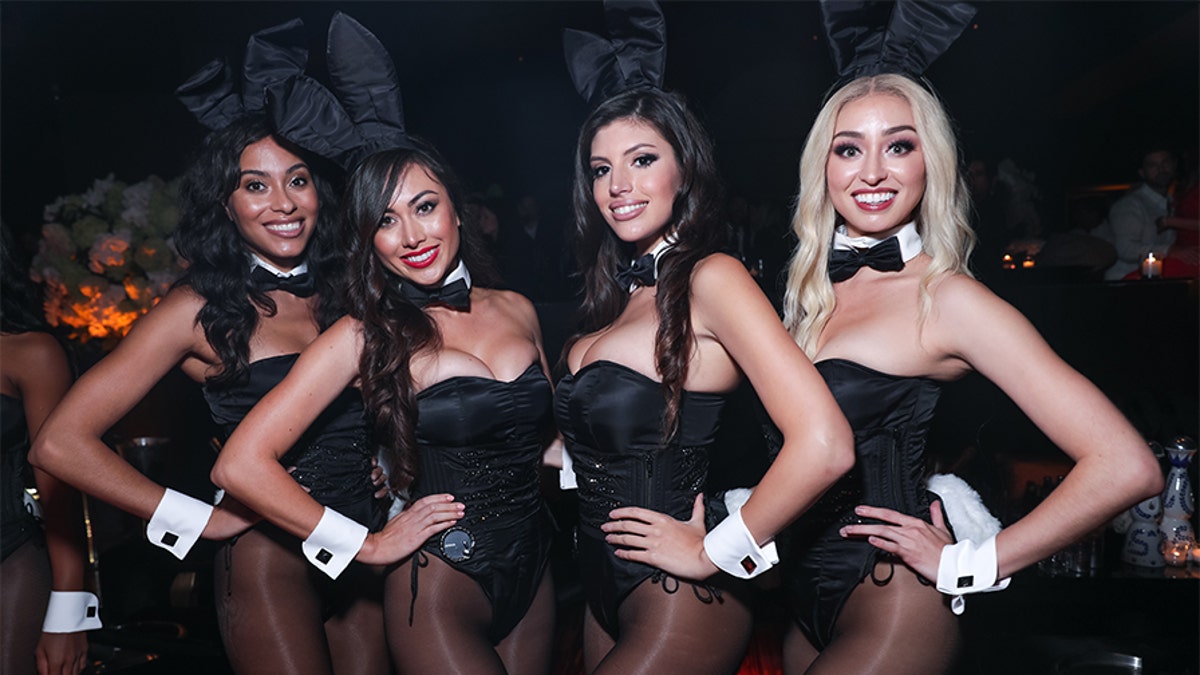
Playboy Bunnies in 2018. (Carl Timpone)
The New York Times pointed out the criticism echoed when Gloria Steinem famously went undercover for Show Magazine and wrote a damning two-part tell-all detailing her time as a Bunny in 1963.
The first Playboy Club opened in 1960 in Chicago, The Guardian noted, and a slew of others followed in cities across the country. New York City got its own version in 1962. The New York City, Los Angeles and Chicago clubs were last of the company-owned clubs (some were franchised, it noted) to close in 1986.
In 1986, Hefner admitted to the New York Times that while the Playboy Bunny had represented "a wonderful time of social and sexual change," as well as "a time of play and pleasure," it had also become “a symbol of the past.”
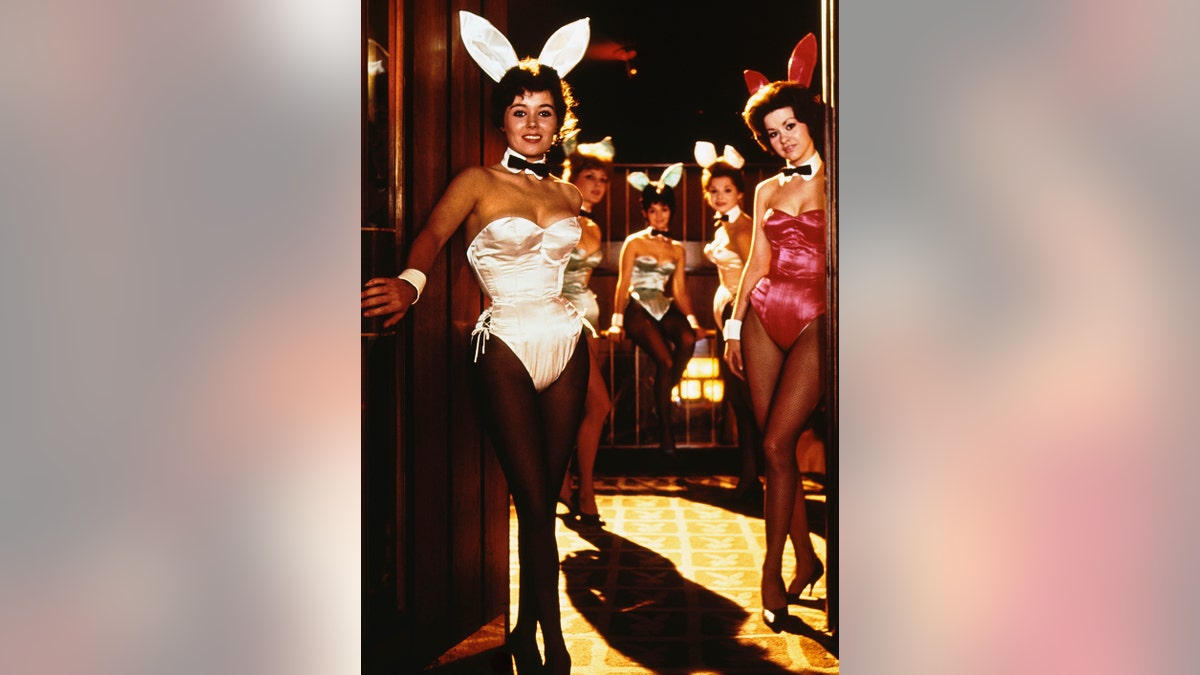
Bunny Bonnie (light outfit) and Bunny Kelly (in red) pose at the Chicago Playboy Club. (Getty)
But when it comes to pop culture, what’s old is always new again. Playboy CEO Ben Kohn told Bloomberg that these days, Playboy is eager to appeal to women, as well as to men.
“When we talk about sexual freedom, it’s also the sexual freedom of females,” said Kohn. “We’re committed to that.”
Emanuel, a Bunny who has been working at the club since its September opening and who also happens to be a co-founder of the nonprofit organization Women with Voices, said there shouldn’t be concern over the new club’s intentions because it’s a liberated, empowering space for its new Bunnies and female fans.
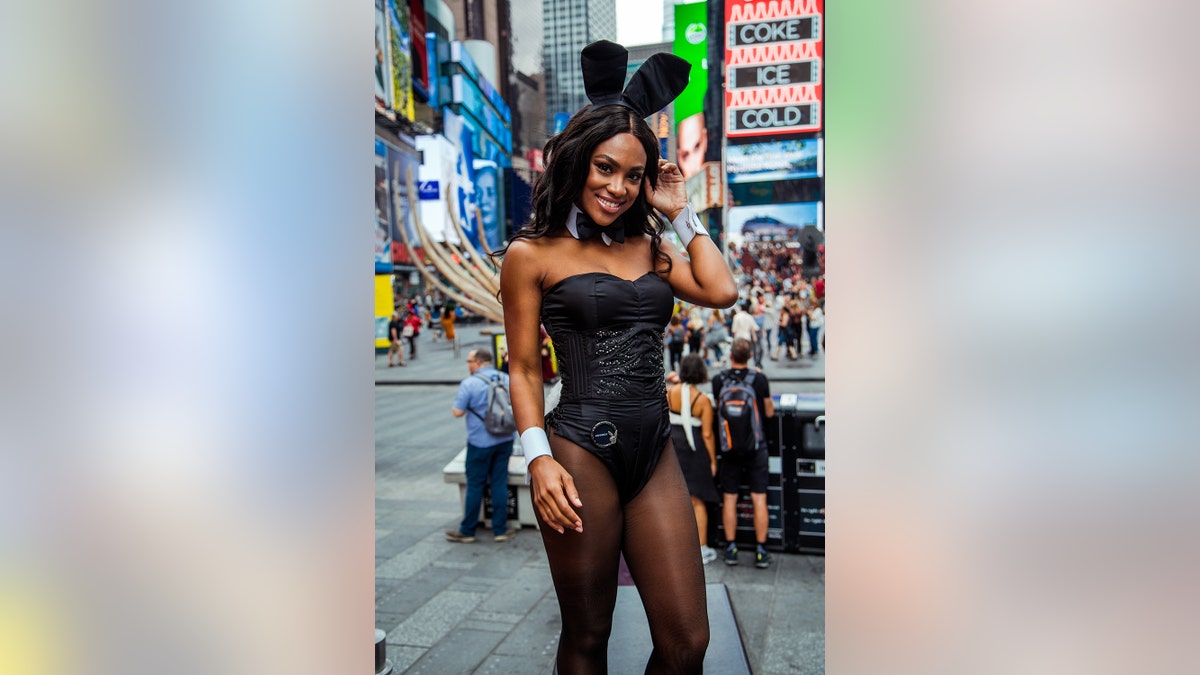
Jordan Emanuel has been working as a Bunny since the Playboy Club opened in September 2018. — Evan Woods
“Honestly, I’m a little confused about the confusion,” Emanuel told Fox News. “I think it gets tough when people try to define what empowers someone else. I think for all of the Bunnies like myself, we feel empowered by utilizing our friendliness, utilizing our brains and utilizing our beauty to provide a wonderful experience for people who are coming into the club. And I think people get too close-minded in thinking that people can’t be empowered by using those skill sets.”
The Baltimore native added she often gets approached at the club by other women who admire the classic costume.
“To get my attention, they love tooting the tail,” said Emanuel. “And it’s mostly women actually, which was surprising to me. But they love the tail, and they love the ears.”

Jordan Emanuel for the November/December 2018 issue of Playboy (Dove Shore)
Despite the newfound role and attention, Emanuel admitted she was stunned to see her racy pictorial in the November/December 2018 issue of Playboy, but is grateful to be associated with a magazine that has shared its platform with minorities long before other mainstream outlets did.
At the time of Playboy founder Hugh Hefner’s death in 2017 at age 91, The Daily Beast reported he was an avid supporter of black activists and entertainers, as well as donated to a number of progressive and legal causes, which included funding America’s first rape kit via his charitable foundation. He also highlighted the works of black writers, as well as published interviews featuring black entertainers.
Emanuel, who studied broadcast journalism long before she discovered modeling “by accident,” said Playboy’s contributions to pop culture history have resonated with her.
“It’s empowering for multiple reasons,” she said on being a Playmate. “The literature, the level of articles, the people who’ve been interviewed in Playboy alone stands out to me, empowers me in that sense. The imagery, the beauty of the imagery. To be among those beautiful women is hugely flattering to me, and something I’m really proud and excited to be among these amazing talents.
“In terms of even racially speaking, Hugh Hefner and Playboy have been a huge brand that supported minorities, and diversity, and have accepted, supported and fought for us. That’s really huge for me. It’s empowered me from every side of the spectrum.”
And before Emanuel was even a centerfold, she was advocating for female empowerment. Women with Voices aims to support women “from all walks of life in areas such as business, health, confidence and other areas of womanhood” through services such as counseling, workshops and networking events, among others.

Jordan Emanuel for the November/December 2018 issue of Playboy. — Dove Shore
“When I moved… to New York, I felt like I didn’t have the support that I would’ve wanted just because my family was no longer here,” said Emanuel about launching Women with Voices. “… I was really seeking that advice, and that push from fellow ladies that I didn’t have. So, when I met my co-founders, we all kind of had that relation…. I was able to see that women from different places don’t have the opportunity to connect the way that they should. So many nonprofits were just for lawyers, or just for sororities. There was nothing that let women just be women.”
And even though Emanuel was compelled to pose in Playboy’s recent issue to show a new side – and face – to the typical Playmate, she said it was a nerve-racking experience to strip down.
“It was a closed set, and there were only about seven of us,” she recalled. “At first, I was definitely a little nervous, obviously. But as the day progressed, it just became very natural to me, very comfortable for me. It was just like any other shoot, except for a huge, iconic brand… It was a really exciting day for me.”
As for the title of Playmate? Emanuel said it’s a badge of honor, much like being hailed as a Bunny. She hopes to continue showing men and women that the titles are freeing for a woman who’s proud of her sexuality.
“To me, the title ‘Playmate’ means fun, liberated — and not just self-liberation, but appreciating liberation of others,” said Emanuel. “And that can be how you speak, where you come from, your ethnic background, your financial background — whatever it is. It’s the freedom to be who you are, and in this case as a woman, which is so important in this generation, but important right now. That’s what being a Playmate means to me.”


